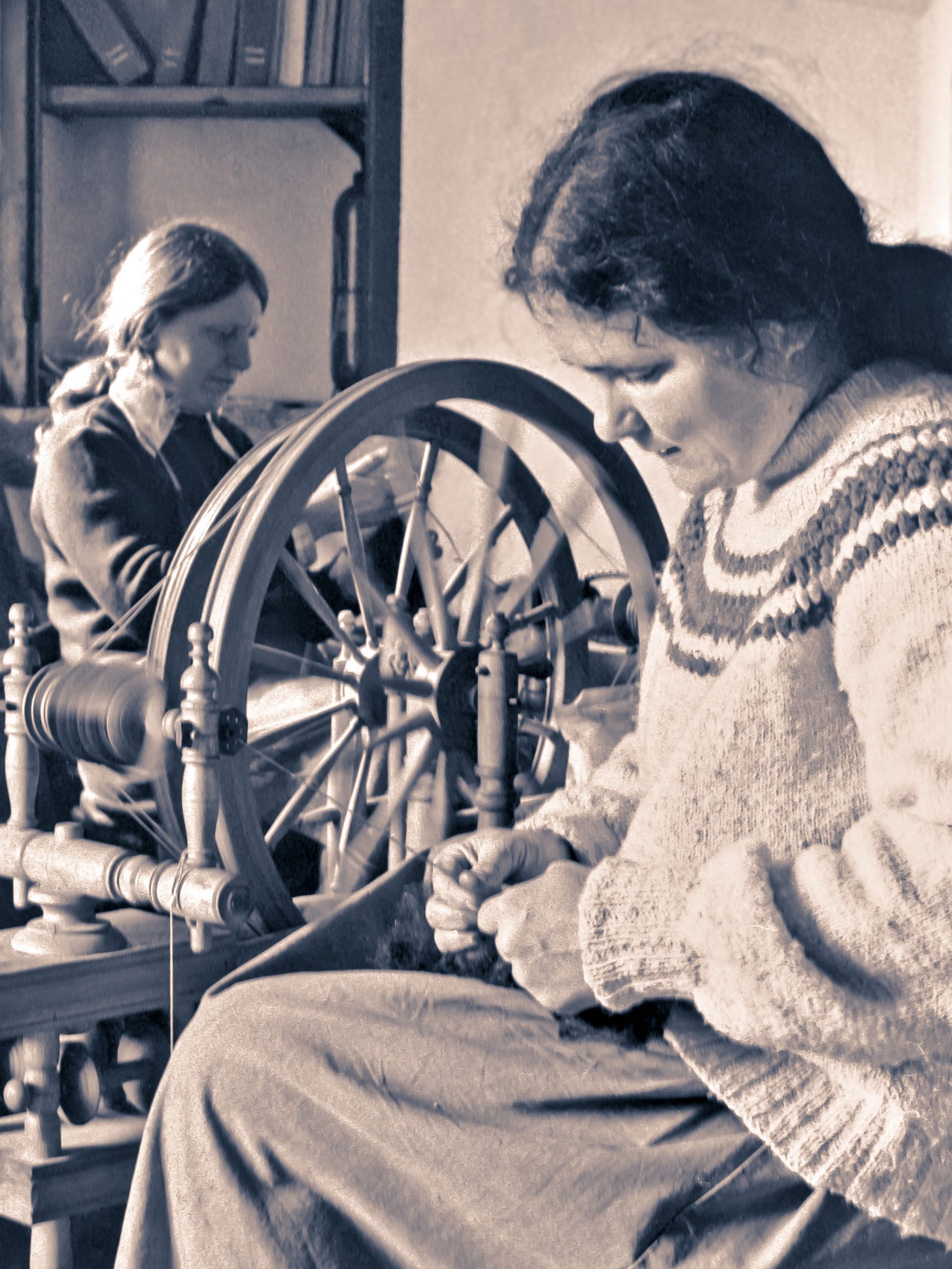Approaches to Inner Life, Part Eight
Lanza del Vasto
Translated from
LANZA DEL VASTO, APPROCHES DE LA VIE INTÉRIEURE
ÉDITIONS DENOËL, 1962
Knowledge, Possession and Gift
The dominant attitude in this world is ignorance of the self — that is, ignorance of matters of the soul; forgetfulness; distraction; constant indifference toward matters of the soul: the consequence of an inversion of the intellect toward profit, toward the appropriation and domination of the external world, things and people.
Conversion, or the Reversal of what Sin had overturned — in other words, the setting upright: Conversion consists in leaving the world, in leaving the external, to return to oneself — to attend first to oneself.
The soul, from its insubstantial and vague state, becomes substantial and alive through the effect of this attention, is illuminated by the ray of this attention and becomes conscious, becomes a source of original and meaningful words and acts. Self-knowledge is unifying and radiant, unlike knowledge of any external thing (for knowledge of whatever is external does not in any way affect its object).
The same thirst to possess things and subjugate others has as its counterpart the inability to possess and master oneself.
A self-knowledge that might be lucid and even illuminating, but powerless and passive, would constitute only an insufficient and deceptive accomplishment. True knowledge of the true self is demonstrated by the royalty of the radiant center, by its ordering and peace-making power over the whole person, even over the instincts and functions of the body. From this naturally follows a detachment from worldly goods and a respect for the freedom of others. This is why it is said: “Blessed are the poor in spirit, for theirs is the Kingdom of Heaven”; since they possess royalty in themselves and thus in substance, why pursue shadows and appearances in external darkness and in the artificial world that is the city of men?
But one can master oneself without giving oneself. Such a one, through strong discipline, has sought, obtained, cultivated knowledge and powers. He who is master of himself “has conquered the world.” But beware of the Prince of this World! One can fall into the hands of the Seducer without knowing it; it is not necessary to become a servant of the Evil One by exercising one’s powers and gifts to do evil: it suffices to cherish them for themselves and use them for oneself, to draw the Fruit to oneself, for this is the very essence of original sin and here is the “sin against the Spirit.”
Certainly, self-possession precedes, in a certain sense, the gift of self, for one cannot give what one does not have. But taking possession must only be done with a view to the Gift. In all the steps and all the efforts to obtain this possession, dispossession must be present.
In spiritual exercises, such as we practice them, you find Relaxation constantly recalled as a bodily reflection of this truth.
At each articulation of the exercise, the attitude of abandonment combines with the contrary element. Spiritual effort requires tension, like all effort. This effort strengthens and unifies the center, but also separates it from everything else, hardens it, makes it rigid, and it is death if the tension is not accompanied by relaxation, by waiting, by an opening.
At the height of struggle and victory, serenity, indifference to the result, humility: “yet not I, but Christ liveth in me,” says Saint Paul. Effacement and strength, renunciation and surpassing, sacrifice and joy are here given one in the other.
I will not speak of the doctrine of Buddha, but his image suffices for me: what do I see? A seated man, his face stripped of all expression and smooth as an egg, his limbs flowing like ribbons and like water, his hands in flower, his feet in flower, his chest in flower, his hair flowering, his smile barely perceptible. Nothing here that is not given, abandoned, rendered. But walk around and look at his back: it is a wall, unshakeable in its foundations, exact in its vertical line; it is the strength and height from which gentleness flows.
And the holy kings in the portal of Chartres, who are columns and thrones rather than human forms, in their stark uprightness, and their humble sweetness like a wellspring from high peaks.
Source of Charity: opening to others. I am not alone in being a self. This passerby too is a self, just as much as I. Access to my intimate unity opens the way to the unity of each being and of all.
But here there is a double system of defense to penetrate without breaking. If I break the vessel, its contents will be lost. One must make of the wall a path, of the veil a revelation. For the veil that covers another to become transparent, we must make our own veil transparent. We can experience this every day: let us open our hand and all will open.
Clench the fist and all becomes striking, all becomes collision; and the general melee follows which is called “this world.”


